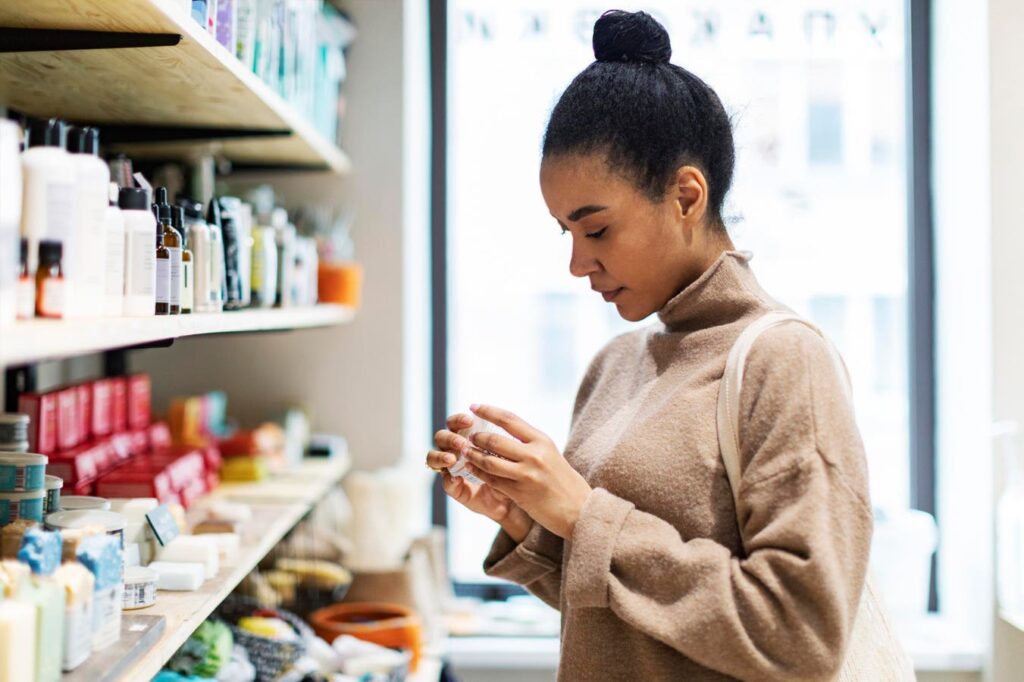Young African woman shopping in zero waste store
U.S. tariffs on Chinese imports continue to squeeze supply chains, beauty brands are finding themselves caught in the crossfire. For Black consumers who drive more than $9 billion in beauty product spending annually these tariffs are having a major impact. Many of the beauty brands they shop with rely on affordable packaging, containers, and raw materials from abroad, and these new cost burdens threaten to push smaller players out of the market.
The Breakdown You Need To Know:
S&P Global reported that tariffs on Chinese goods have come down to 30% from 145%, but can still increase production costs for many companies. Major corporations may absorb these changes, but indie small brands often can’t. The Black hair care market’s value exceeds $2.5 billion in this country, according to Mintel, which depends heavily on Chinese manufacturers, putting enormous pressure on product availability and prices.
For some store owners, Chinese manufacturers supply about 90% of items found in beauty stores. CultureBanx noted they provide everything needed in the industry, from wefts used in sew-ins to ingredients like shea butter for ethnic hair care products.
Tariff Beauty Blemish:
Black consumers make up about 70% of beauty supply market spending and trade policies affect all retailers, though Black-owned businesses suffer more due to existing inequities. The numbers paint a grim picture since Crunchbase reported that investment in Black-owned businesses dropped to $705 million in 2023, a 71% decline that marks the lowest point since 2016.
Lack of capital hits Black hair stores across the country hard as this tariff crisis continues to play out. “Black beauty entrepreneurs already face systemic barriers within the supply chain, including limited access to capital to place large bulk orders that could help offset tariff costs,” explains Tomi Talabi, founder of the Black Beauty Club told Essence.
Struggling Supply Chains:
The tariff effects ripple out further because Black-owned brands are significant employers in their communities and often support other Black businesses through their supply chains. So when trade policy tightens, it doesn’t just hit one company, it disrupts an entire ecosystem of cultural and economic empowerment.
Government trade decisions rarely consider these cultural ripple effects. Without inclusive policy reform or tariff exemptions for small-scale importers, Black entrepreneurship in beauty could be priced out of its own success story.
What’s Next:
This is more than a supply chain issue, it’s a culture cost. The texture of beauty shouldn’t be reshaped by foreign policy. Purchasing power, when directed toward these beauty businesses, helps stores survive external pressures. However, if the pressure continues to mount, direct-to-consumer channels offer promising ways to bypass traditional store font issues to make sure all your beauty supply needs continue to be met.
Read the full article here
